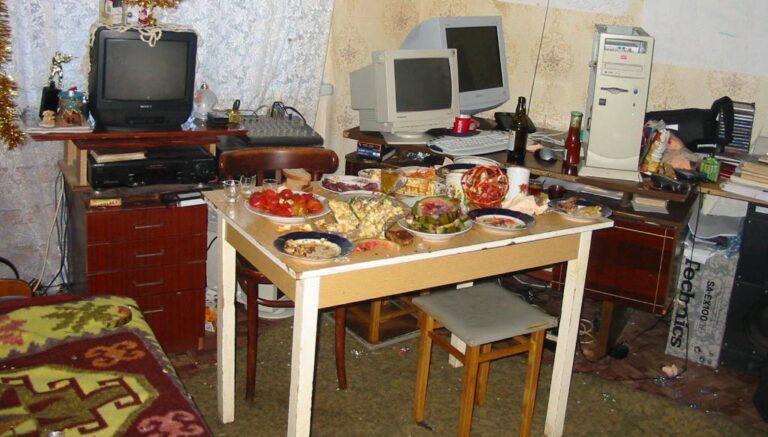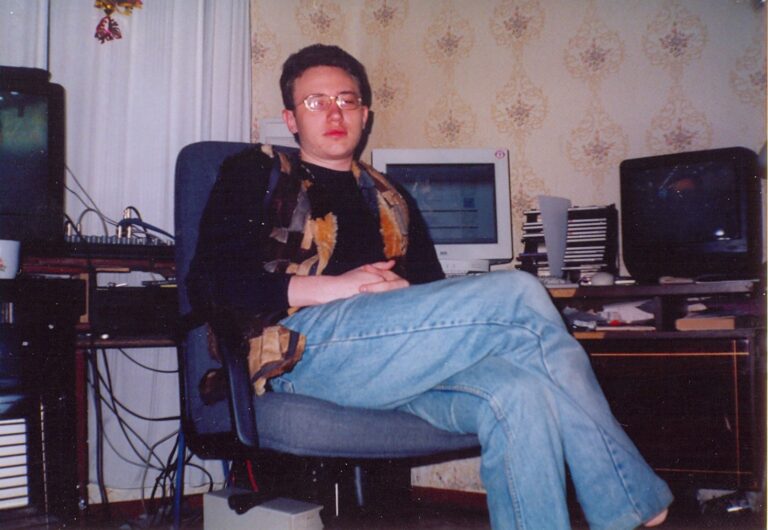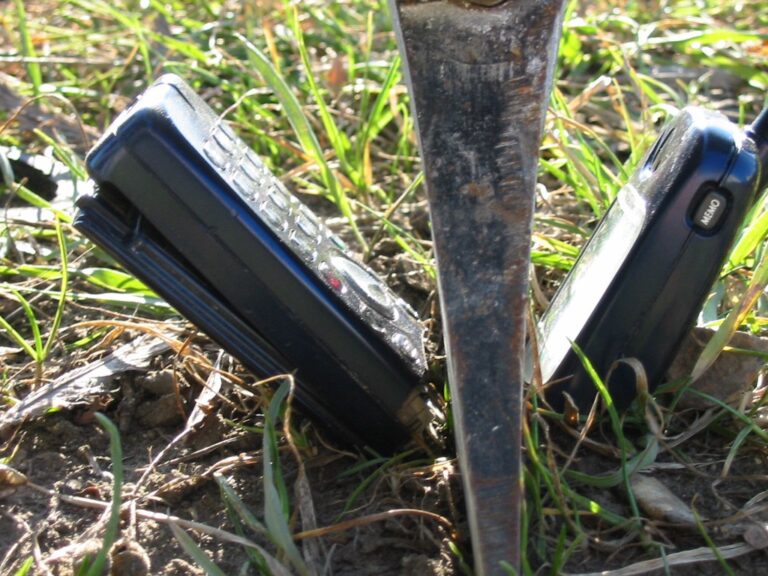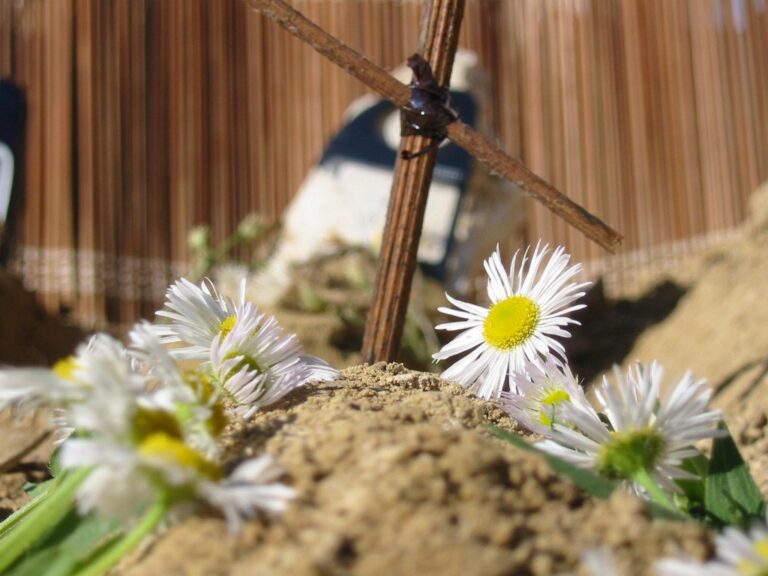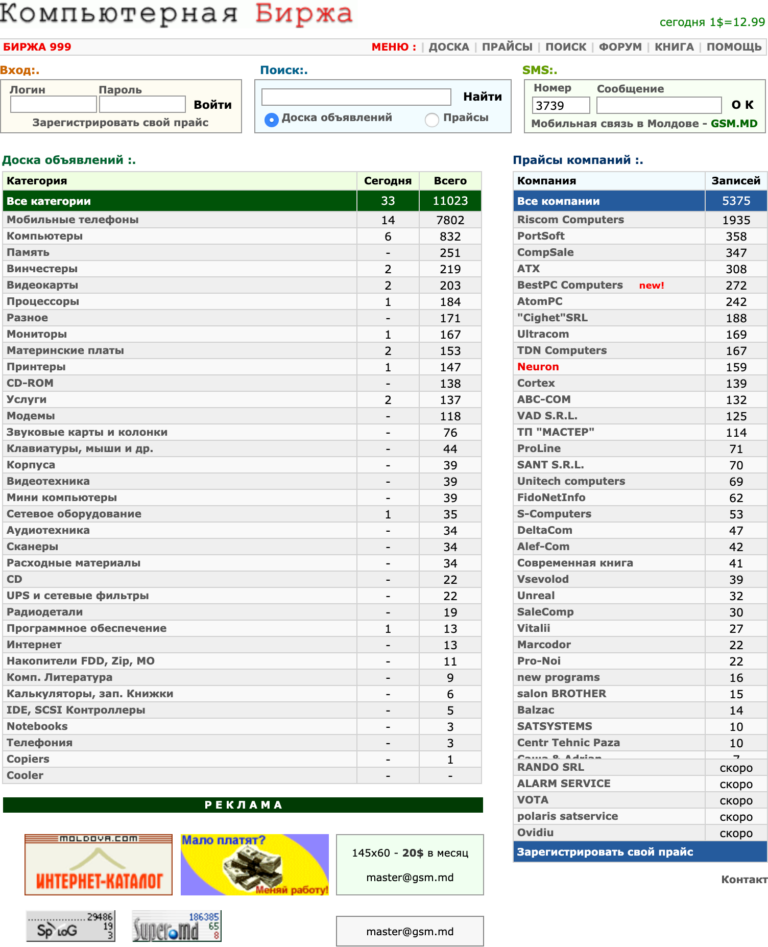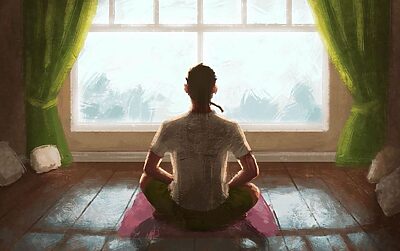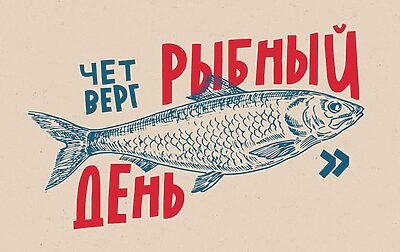The engineer
Someone is born a singer, the other one an artist, and someone else a soldier. I was born an engineer. Since childhood, I’ve been surrounded by tinker toys, disassembled railroads, and broken cars. In 1986, my father who was in the military was transferred to Moldova. So, our family moved to the town of Floresti, where I graduated from school. There I became passionate about radio electronics and started assembling – first radios, then my first computer. Then I made my first games in BASIC, and oddly enough, they were sold. Then I realized that I would connect my whole life with computers, so I entered the Polytechnic University, specializing in “Computing Machines, Complexes, Systems and Networks”. As a student I lived in a dormitory, and it was then that I realized how little I needed for happiness. Just three things – “Bread, tea and toilet paper”. And, of course, a favorite occupation.
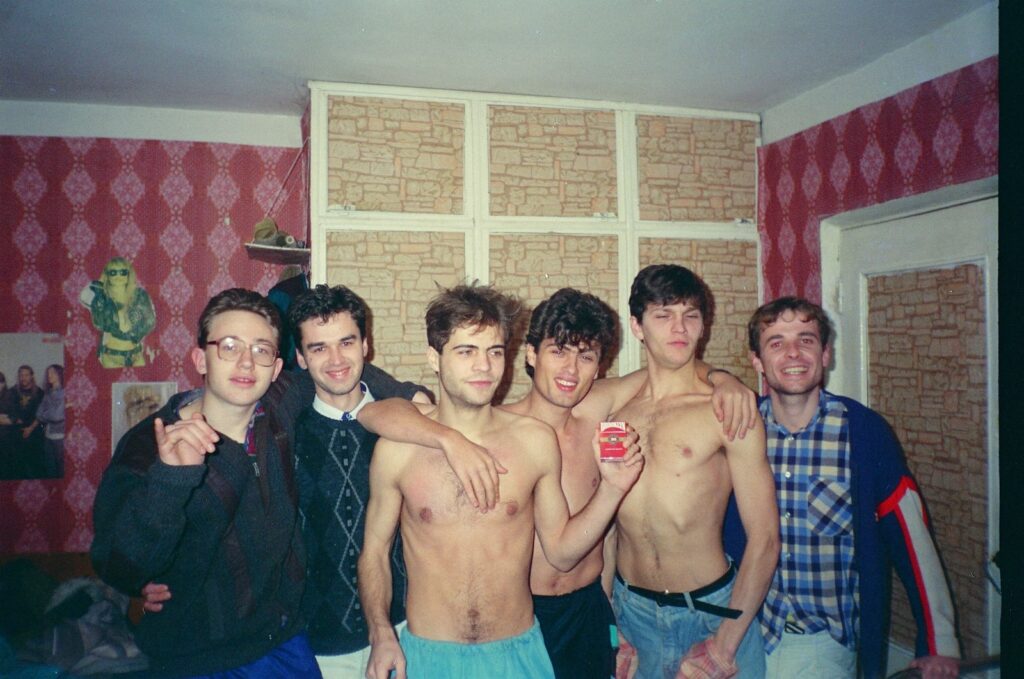
I met Sashka Kovalev in the second year and we immediately became friends, as we both were fond of computers. Time passed quickly and, in 1996, we were already insolent fifth-year students who went on internships at Revel computer. There we did all sorts of things – assembling computers on 486 and Pentium processors), installing Windows from a dozen floppy disks. I also did maintenance, cleaning, repair, hardware configuration.

It was there that I tested my own program – my bachelor’s thesis on evaluating the performance of personal computers based on the “Game of Life” by John Conway. Performance was as huge as the number of generations that managed to change in a minute. That’s simple.

Work all day, play all night. Warcraft, Doom, Duke Nukem and of course Quake. During that period, I played enough for my whole life. Good riddance!
But back to my friend. The internship and college were over, and we came face to face with the famous nineties, about which so many horrible things are told. But in reality, it was a time of opportunities: the market was emerging, those who were already in power privatized entire neighborhoods, took over factories and printing houses, bought banks for nothing. In short, whoever had the chance to milk the remnants of the former USSR, they didn’t hesitate to do this.
My friend and I, like two ants on the side of the road, watched the world around us change rapidly. But our life was in full swing: we realized that computers were no longer just for the elite and that soon they would reach every house and home, so we decided to sell computer components.
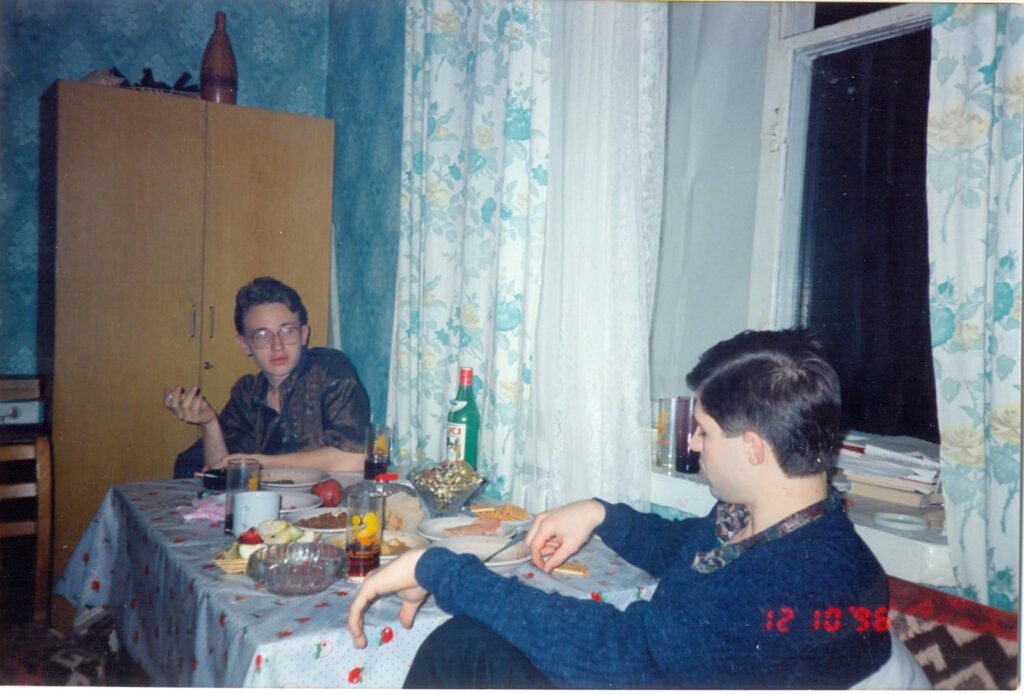
The following year, Sashka got a job at Revel, and I, after seeing a pixel cube rotate on the green screen of a pot-bellied monitor, got interested in 3D graphics. I studied and started to make commercials. But that’s another story.
In parallel, we published ads in the Makler newspaper saying that we were selling computers and components, while we ourselves bought them cheaper from distributors raised 20-30% on this. It was not that much, but it helped us not to get lost and keep up to date with what was happening in the field of technology.
Moldnet
And then came 1999 – the year when the first websites in Moldova emerged. More precisely, they started to develop earlier, but by then there were quite many of them – maybe over a hundred. The Internet was available to select legal entities with substantial incomes. As for mere mortals, they could only watch the WWW grow through the ear of a squeaky telephone modem.
Today it’s hard to imagine, but back then every website, from internet providers to editorial sites, made me feel like attending the birth of galaxies or the rebirth of the universe after the Big Bang.
In short, I was completely absorbed in the Internet. More precisely, I was “dragged in” because the speed was 32 kbps. For example, today, to watch a movie in mediocre quality (1.5 GB) at this speed, you have to wait four days. That’s why in the last century, the Internet consisted of text and small pictures, but that didn’t make it any less interesting than now, and we would spend countless hours in front of a screen.
Phonebook 909
The more I surfed the Internet, the more I wanted to participate in this outrageous thing. Therefore, I was trying to figure out what project I should go online with. And one day, as I was looking for a phone number, an idea came to me:
— Sanyok, how about taking the 909 phonebook base and putting it on the internet for everyone to use?
Informative note: 909 was the phone number of the information support service, which you called to find out the phone number of a company or the full name of the client and vice versa. Recently, the database was registered on a disk that was sold at Ptichka (bird market, where electronics, disks, hardware, and others were sold). Without thinking twice, we bought the disk, copied the database from it. Sasha made a form, connected the database and voila! It was working!

Now the domain. Well, that was more complicated because our dear officials in 1998 managed to sell the .md domain rights to an American company for nothing! And that’s because the abbreviation MD means medical doctor to English speakers. Foreigners bought the domain name from us like hot pies in winter.
And if we talk about ourselves, we couldn’t afford an .md domain, as $ 60 a year was as much as two months’ rent for me. But we decided to do everything in earnest, chipped in $ 30 each of us, tightened our belts and went to register the domain. I remember being in a holiday mood – it was December 1999, the last month of the century, so we came up with the idea of replacing 909 with 999, paying tribute to the last year of the pre-Internet era.
We launched and immediately started calling our friends to try it and tell everyone. Attendance began to grow, and we were happy as children. 50 people a day, 120, 200! This is a success, Sashka!
But it all ended abruptly. A week later, a lawyer from Moldtelecom called us and said that he would send us to jail if we did not close the site with stolen personal data.
Things happen: you think that you’re making people’s lives more simple, promoting technology and changing the world for the better, but it turns out that you are just a criminal.
The first website
It was the year 2000. A few months passed and I forgot about that unpleasant incident. I was completely immersed in 3D graphics, videos and deadlines. By that time, I was already a solicited 3D specialist, with a bunch of orders for videos and a portfolio that I was uncomfortable carrying with me on a VHS tape. And because I was so curious to find out how the new WWW technology worked, I decided to make my first website for my studio. I know it sounds pathetic, because then I was renting a one-room apartment on the outskirts, full of tangled cables and crumbs for which cockroaches fought, and if you opened the freezer you could only find a mouse hung from hunger and despair…
Without a second thought, I bought the madframe.com domain (for less than $ 10) and got to learn HTML. I spent the whole summer reading books (there was little about the Internet on the Internet at that time), Sanya helped me with the guestbook, and at the end of August a new site with videos appeared in the www:

Really, back then Hi Quality = 320×240 pixels and one and a half megabytes. And that was wow! Now I could send a link to the site to all potential customers sitting at home and waiting for their orders. Only I didn’t take into account one important circumstance, which many times hit me afterwards. The market was not ready. Almost no one had e-mails, and those who had them could not watch videos because of the buggy codecs and broken links. But it didn’t matter since I had my own website!
GSM.md
And while I was busy with my website, the Moldnet was hit by changes that shaped the market. By the end of 2000, large players and large sites began to appear (with a traffic of more than 500 people a day). Here are some of the networks that were in top of the Moldnet those days:
Babylon: www.try.md, press.try.md, cherchez.try.md, meteo.try.md bbn.try.md chat.try.md
DNT: ournet.md, mail.md, ad.md, news.ournet.md, design.md
Zingan.com: reporter.md, www.tri.md, www.gsmworld.md
There also were Leskin Domik, the job search site MoldovaJob and the first ads board — “Ptichka”, launched by Relsoft.
Then we looked at the “monsters” with a total attendance of 1000! people a day and it seemed to us something as unachievable and incomprehensible as space…
And then, thinking about where to go, I realized that I needed not to dig the ground in search of gold, but to sell shovels. Why trade when you can take money from those who trade. Mobile phones were on the rise, so we decided to make a website for everyone interested in mobile phones and especially those buying and selling them. But we were expected to do more than a web page with pictures. We thought of a site with a database, a forum, a flea market, prices and operator news. In one word, a programmer was needed. As we had no one to help with programming, we decided that Sasha would become a programmer, and I would become a web designer and layout designer (after all, the passion for beauty won in me).
We started to learn new subjects that were difficult, especially web programming, but nevertheless, six months later, in November, GSM.md was born – the first site in Moldova about mobile phones.

Our startup days began, though there was no such word then, but there was everyday life. Sashka was in charge of technology and programming, I was doing design and marketing. We were lucky that “Ptichka”, our main competitor, had abandoned the mobile phone section. We took advantage of this and started promoting our panel among mobile phone sellers, since we knew them from the market.

I will anticipate and tell you that gsm.md not only offered us experience with UGC (User Generated Content) resources, but also made us understand several things, namely:
1.How viral marketing works. And how it does NOT work.
2.How you should not promote a mobile phone shop by destroying phones in the “Mogilnik” (cemetery) campaign.
3.How to gather an offline community and then take their dizzy bodies to the ambulance.
4.What it’s like to deliver phones by trolley and realize that it is not a business, but rather self-employment.
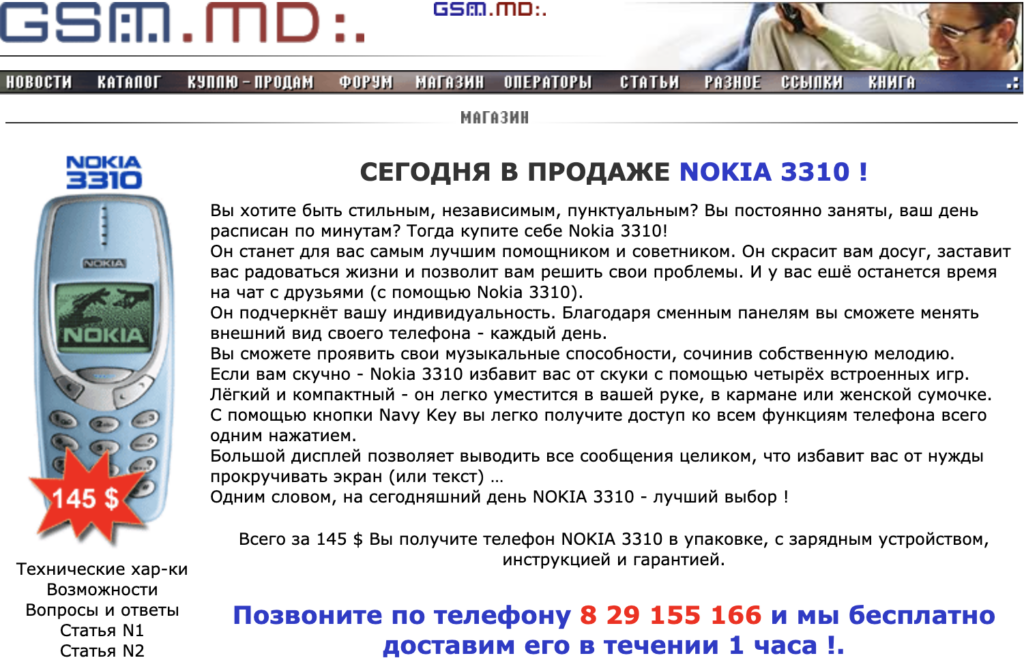
In a word, GSM.md — is our firstborn and great-grandfather of our entire ecosystem today. Despite all the difficulties, it taught us a lot and gave life to other projects. 999.md, came out of the flea market, formum.md came out of the forum, and the news sites Point.md & Stiri.md. Today these are the three most popular sites on the Moldnet (not counting Google and YouTube, of course), with over a million visitors a month.

GSM.md did not know then that its children and grandchildren would become so successful and famous. It just did its job well, raised the kids and died quietly five years later. Rest in peace, gsm.md
Computer market 999
Around the same time, my parents realized that there was no future for them in Moldova and returned to their homeland, Orenburg, and I was left alone in Moldova. No relatives, no connections, no house, no money. How naive I’ve been! I was fascinated by the Internet and thought I could make my way.
In the meantime, after seeing the success of the flea market on gsm.md, I understood where to go next. At that time, we were selling hardware at the Ptichka and we were doing well. Even though the design was poor and the navigation was awkward, and the net slowed down regularly, the site developed and changed for the better.

Seeing the growing popularity of the Ptichka, it became clear that soon we would not be able to catch up in terms of presence, so we decided that our next project should be a computer market – a simple, convenient and confident one.
But we had to work as fast as possible – Sanya rolled up his sleeves and started programming again, me – doing design and layout. In December and January, except for holidays, we worked 16 hours a day.
I tried my best to make an original design to amaze everyone, but my creativity took some strange forms:

If someone had told me then that website design was not about beautiful images but UX interviews, Custdev and User Stories, I would have proved them they were crazy and that my design was the culmination of creative thinking.
Inevitably, Sanya thought the same as he was disassembling the gsm.md and reassembling a new site from pieces. He hardly knew anything about Agile, Scrum or Kanban.
And we both had no idea that we were startupers diong MVP (mvp minimum viable product). For us it was an online flea market, with a bunch of subsections and the ability to submit an ad without registration, which had to be done quickly.
At last, 23 January 2001, horny-handed because of using the mice, red-eyed from flickering five-Hz monitors, we launched a site that would change our lives. But back then, drunk in the kitchen, celebrating the launch, we were unaware of that. Neither did we realize how much pain, tears and hard work we would have to invest to turn that ugly duckling into a better project.
To be continued…

